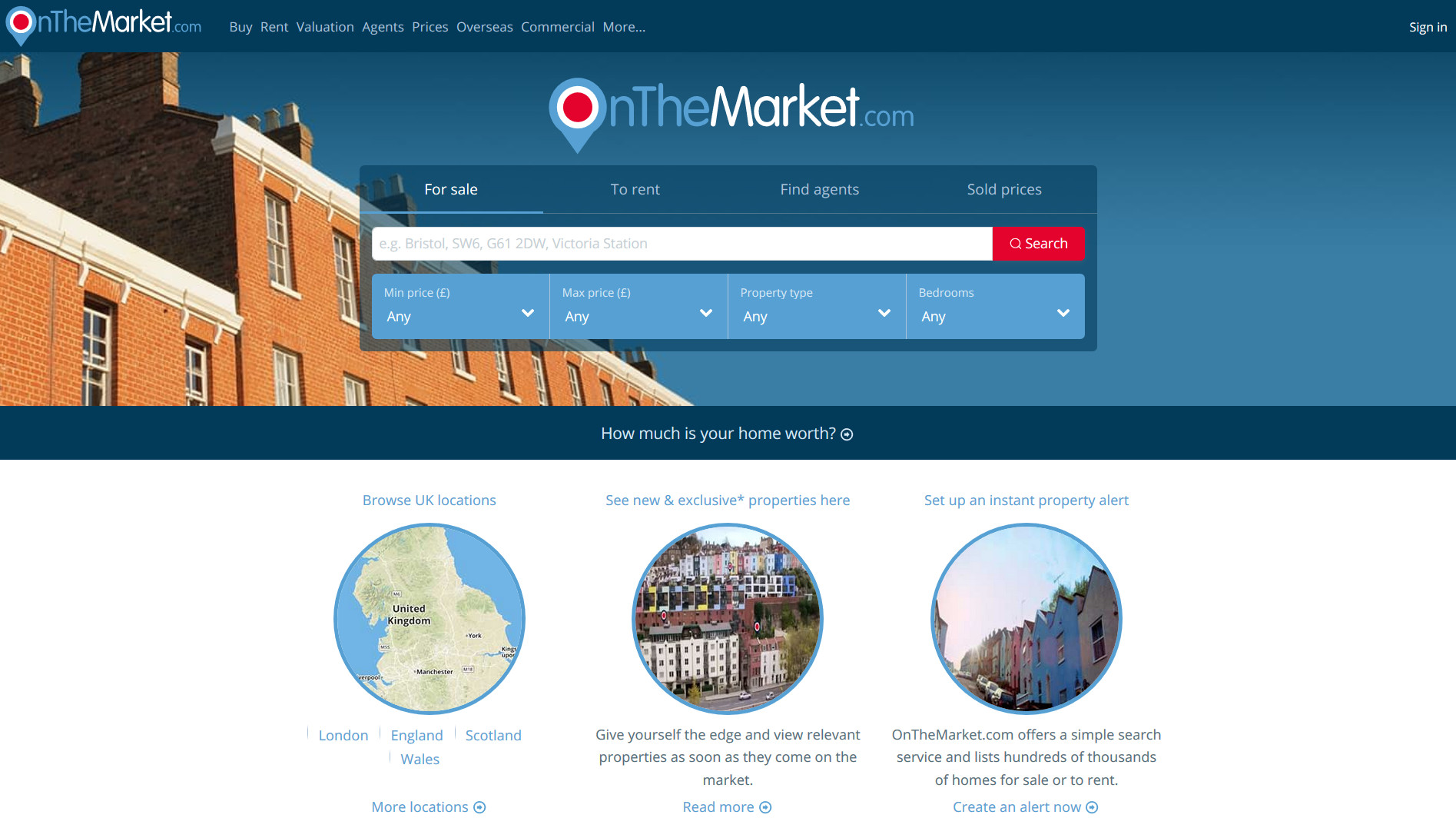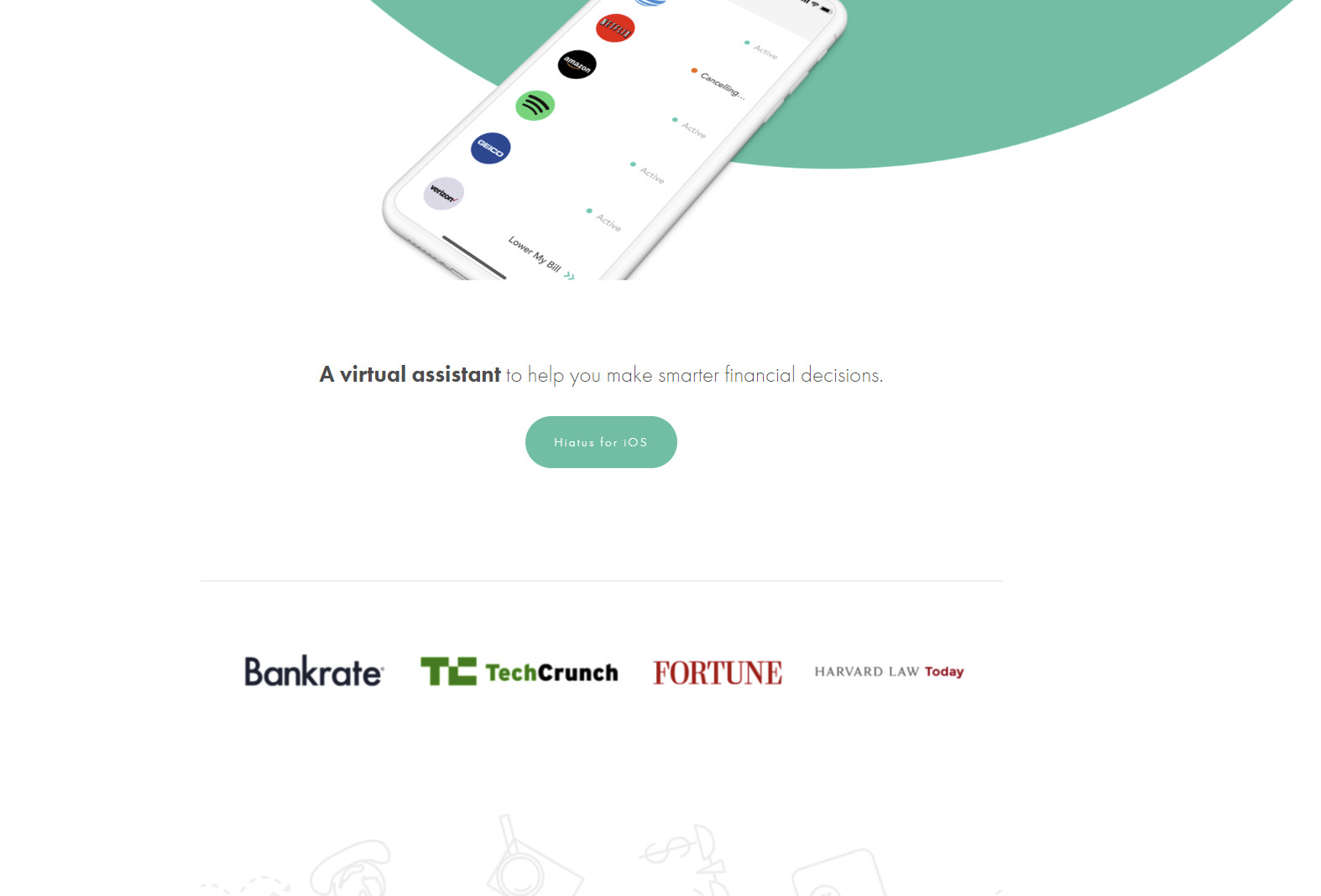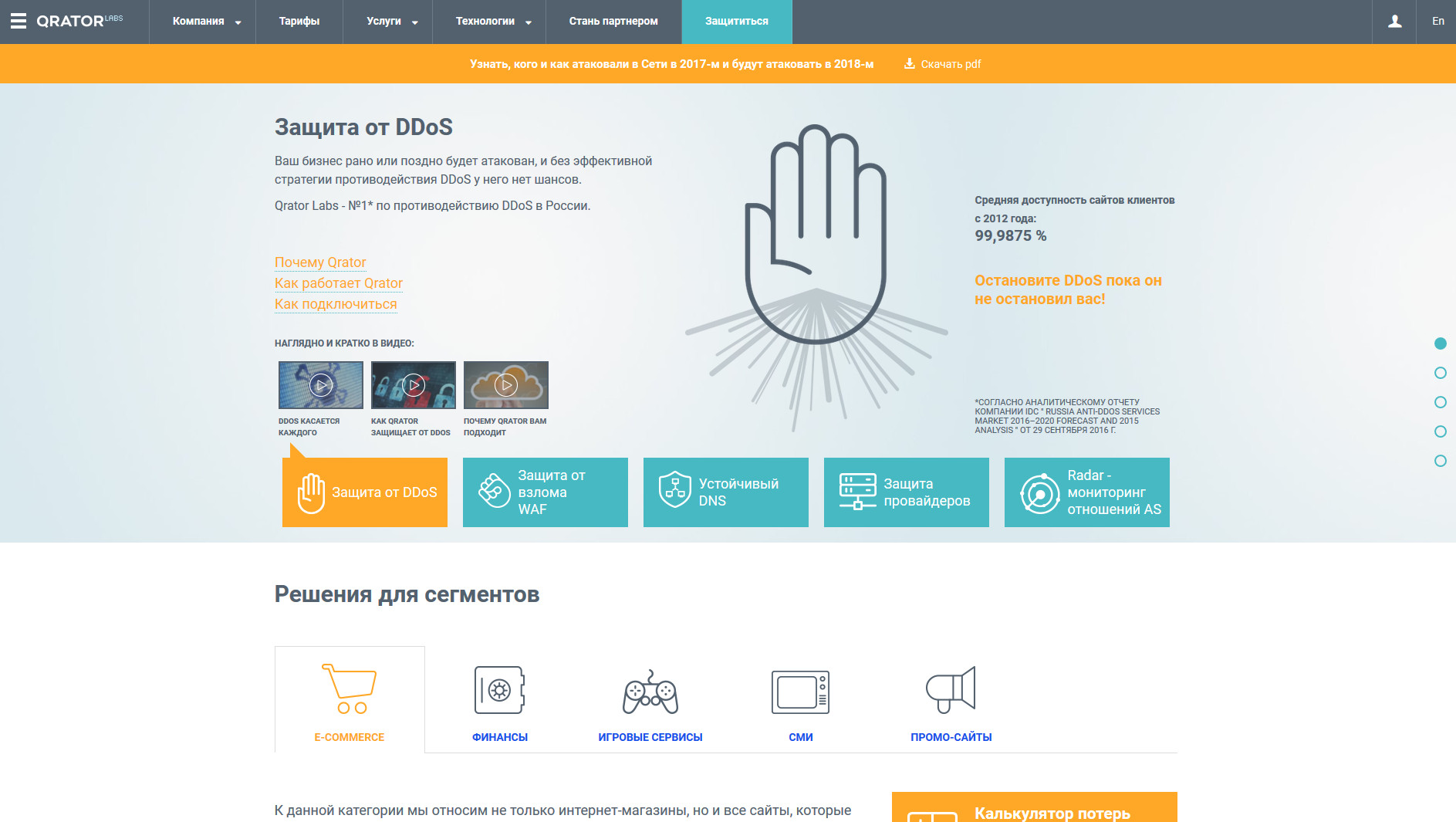Startup of the day (April-June 2018)

Continuing the “Startup of the Day” series of digests, today I present the most interesting projects for April-June 2018. If you want to read the rest, then please in my blog. Records are available on Facebook , ICQ and Telegram .
Onhemarket

Property listings such as our Cian earn on paid services for agents, in the simplest case on paid publications. The realtor cannot refuse, the apartment, which is not in the class, will never sell, the buyer will not find it. The price of publication over the years grows: how can it not grow if the counterparty has no choice. Agents got a convenient tool 15 years ago, and now this tool takes their income - the story repeats at different speeds in many countries.
In England, realtors rebelled. They were able to negotiate among themselves, created something like a cooperative and launched their own classifier, Onthemarket. Initially, of course, not all the agents of the country participated in the plot, of course, they let the new ones into the share relatively easily. Magic does not exist, the company earns everything: it takes money from agents for placement, but the price is reduced by special relationships and the very fact of increased competition. Previously, there were two portals, now it has become three - the difference is significant.
The product on themarket looks as expected - that is, without pretensions and hipster design, but you can use it, the filters work, there is a mobile application - and what else is needed for happiness. The unusual thing is that there are a lot of ads in the database, although an ordinary startup cannot solve the problem of chicken and eggs, the blank site remains empty. Onthemarket at the expense of friendship with agents for three years of life gathered at the site a third of all the announcements of the country - this is a good position, even without taking into account the ease of increasing the share. The audience comes to the content, now it is only 9 times smaller than the industry leader, Rightmove. Given the small age of the company and the lack of significant investment - an excellent result.
Revenue Onthemarket - 18 million pounds a year and does not grow, in the last six months there was a small profit. The company made a micro-IPO, is now on the stock exchange 75 million, the program of issuing shares to realtors is still in force. In general, it is a clear success of the community and a precedent for solving the problems of Internet monopolies, the model can be repeated in other countries and industries.
DocuSign

Modern startups at the junction of offline and online, such as taxi aggregators or food delivery, do not cancel, but restructure the old process. After clicks in a beautiful application, the same machine arrives to the user or the same courier arrives with the same burger as before. IT reduces waiting time, ratings improve service, but the essence of what is happening remains the same: a car from point A to point B or a courier with a thermo bag.
DocuSign went all the way; it fully translated the online document signing process. The technology of the product is trivial: the sender downloads the file, indicates the recipient's e-mail address, the link comes to him, he clicks - and that’s it, the document is signed. DocuSign keeps it forever, if necessary, will show in court. No round stamps, no papers, couriers, an archive, after all! A dozen clicks and two people confirmed that this doc-file really reflects the agreements reached. The sender pays for the service, his partner saves paper for free.
The legal significance of such documents depends on the specific country, but in the main market in the United States, Docu-signature, in principle, is not inferior to the usual, with wet ink. No state certificates or special equipment required. At first glance, the mechanism seems unsafe: to steal an e-mail is a couple of trifles, and then the attacker even sells a kidney from someone else’s face. And it is true. The trouble is that the paper is even worse: printing with any image in Moscow is done for 1000 rubles and half a day, it is identical to transfer an autograph to the sheet with a new text — this is also more than a task. In addition, the electronic version gives more control after the fact: you can always look at your documents in DocuSign, fakes fall into the list and attract attention.
The other extreme is the exchange of scans by e-mail both without sending paper and without external systems. From a legal point of view, this way is no worse than DocuSign, but it is clearly losing in terms of convenience: the printer is needed, and it is more difficult to search later, and the parties can even inadvertently sign different versions of documents. In general, the demand for a specialized service is quite obvious, the startup client has more customers every year, and their potential number is limited to astronomical numbers: all businesses in the world sign the documents. There is a market.
Even easier with marginality. DocuSign provides only electronic service and does not make any gestures offline, the cost to the client after recruitment is only servers and technical support. Now they make up 20% of a startup’s revenue, but it’s likely to fall even lower. Marketing, of course, is much more expensive, but sooner or later it will be beaten off, because once a connected business remains with DocuSign forever: it’s difficult to leave your documents.
The last big potential threat for a startup is frontal competition. There is no magic in technology. At first glance, anyone will repeat the service, put the price two times lower and begin to eat off market share. In principle, this is possible, but some “but” interfere. The most progressive clients are already using DocuSign, they will not move for a discount of a few dollars, the second player will have to start immediately from a heavy-lifting audience - a big minus. The signature technology core is simple and repeatable, but DocuSign has implemented many routine things around: support for file formats, integration, and API — thousands of person-years of R & D investment. A competitor deliberately starts with the worst product in trifles and will catch up with the leader soon. Finally, the network effect. The service now has 300 thousand paying customers, and each of them sends documents for signature to partners and counterparties. At that time, they do not pay anything to DocuSign, but information about the essence of the product and the brand is distributed on its own. The more customers pay today, the more they will connect tomorrow.
Competitors may exist with these problems in mind. Actually, Adobe has already come out with its Adobe Sign, but it seems that the leader will maintain its position for a long time. The stock exchange in DocuSign also believes that the current valuation of $ 6 billion is reliable evidence of this.
Hiatus

Businesses love a subscription. The situation has changed, the tariff has increased - we raise the monthly bill to the client. The competition has grown, it was necessary to lower the prices - why bother the buyer, you can take him from the old for years, until he thinks of reading the news on the site.
In the US, Hiatus comes to the rescue of a lazy customer. He connects to a bank account, looks at subscriptions, and first of all offers to turn off unnecessary - the most simple and effective optimization. However, many do this; there is no news in this approach. More interesting is the next step. If the service cannot be simply abandoned, Hiatus, on behalf of the client, bargains about reducing the tariff, requires new prices with the old set of services.
In return, the startup takes half of the saved money - a good offer for the user, he runs no risk, and for Hiatus himself - he worked once, the money has been dripping all his life.
A start-up PR said that using it, 93% of users save, on average, $ 137 per year. It sounds impressive, although if you subtract the share of Hiatus and recalculate it to the usual interval, it turns out 6 bucks a month - not very cool anymore. On the other hand, they don’t look a gift horse in the mouth when money falls from the sky, you have to take it.
Discount negotiation tactics remain a startup secret, two similar options can be assumed: either Hiatus just looks at the website for changes in the tariff and lowers payments to modern ones, or, thanks to access to thousands of accounts, knows what price the business has already agreed on, which means it will agree time.
Unfortunately for Americans, all this magic does not fly: there are few users, investments are ridiculous by local standards $ 1.2 million more than a year ago. Hiatus even the application only under iOS launched. From the side it seems that in negotiations there is too much manual labor, half the discount does not pay for it.
Qrator Labs

A couple of years ago, once a month, you could see a headline like: “Such a well-known resource is unavailable as a result of a DDoS attack.” Without complicated abbreviations, this meant that someone bad turned on the network of bots for constant calls to a specific site, but he could not stand the load and “fell”. Now such messages have stopped, I don’t know if the topic has bothered journalists, or everyone has finally bought the services of Qrator Labs. This is a Russian technology startup protecting customers from external attacks. The flagship product is DDoS protection. When buying a subscription, site traffic starts to go through the Qrator network, where algorithms separate the wheat from the chaff. Only live people, not bots, reach the client's server. The tariff depends on the traffic of the project and the amount of potential DDoS, the client does not pay for the fact of attack filtering. If bots came more
The subscription price is measured in tens of thousands of rubles per month. If we assume that the average DDoS lasts a day or two and happens to the site every three years, the direct margin of profitability of Qrator is somewhere at the level of revenue of one million rubles a day. If the service does not earn so much, it may not pay for protection, and at the moment X just go on vacation for a couple of unpleasant days.
However, for projects that are not out of scale, there is a partial solution: Qrator Labs also earns consulting. Protection from full DDoS for 10-50 hours can not be created, but, having corrected obvious errors in the architecture of the service, it is possible to repel the attacks of the “pioneers” on our own.
Qrator did not raise public investments, but the business on a Russian scale is successful, the client list includes iconic companies from Avito and Qiwi to Raiffeisenbank and RIA Novosti. The American partial counterpart, Cloudflare, has long been a unicorn, to work well in a large market.
Afiniti
Sometimes at the heart of a huge company lies a surprisingly small feature, there is almost nothing to describe. Startup Afiniti sells one single solution to one single task - the choice of the operator in the call center. 30 employees are sitting in front of the phones, 20 are talking, 10 are free. A new call arrives, someone has to answer it. Traditional systems choose an operator with a single line of code — the best in points, or random, or first in line, or some other, equally understandable.
Afiniti has found a place for optimization here. Based on the results of previous conversations, the neural network determines the most suitable employee for this particular client, calm operators communicate with hysterical clients, women with feminists, and millennials with millennials - something like that. Calls are more successful, the company earns more money at its call center. Miracles, of course, do not occur, even in promotional materials a startup writes about an average 4% increase in revenue. On the other hand, a 4% increase in revenue out of the blue is an excellent reason to introduce a new solution, especially since the integration is easy, all standard telephony is naturally supported.
In the last round a year ago, investors valued the company at half a billion dollars. One and a half billion for one claimed optimization!
